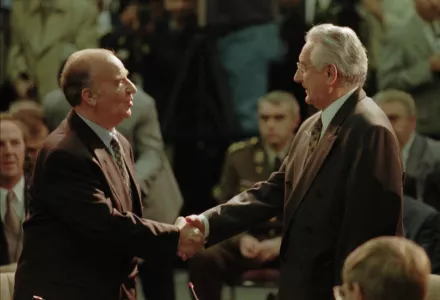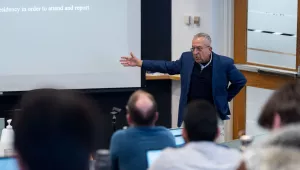
Summary
Historically, most civil wars have ended with the military defeat of the losing side. In the 1990s, by contrast, civil wars usually ended with a negotiated settlement. What accounts for this anomaly? Over the past several decades, dominant international norms have determined how civil wars are most likely to conclude. Understanding this dynamic could help policymakers better evaluate how to end such wars.
Lise Morjé Howard and Alexandra Stark, "How Civil Wars End: The International System, Norms, and the Role of External Actors," International Security, Vol. 42, No. 3 (Winter 2017/18), pp. 127–171, doi:10.1162/ISEC_a_00305.
The full text of this publication is available via International Security.







